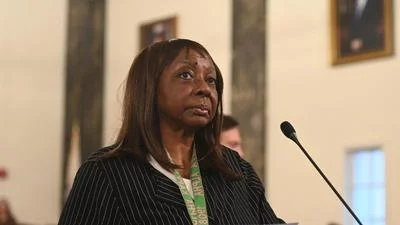Metra Board of Directors Fare Structure met December 13.
Here is the minutes provided by the Board:
The Board of Directors of the Commuter Rail Division of the Regional Transportation Authority met in a public session for a Workshop on Wednesday, December 13, 2017 at 12:45 p.m. following a closed session of the December Board Meeting in the Metra Board Room, 547 W. Jackson Boulevard, Chicago, Illinois, pursuant to notice.
Roll Call:
Members Present: R. Brown, R. Craig, D. De Graff, A. Holt, K. Koehler, S. Messerli, S. Palmer, J. Plant, J. Zediker, and Chairman Carlson
1. Workshop Goals:
Cyndy Pollan from Four Nines presented the study recommendations to the Metra Board for discussion and to obtain Board direction for Public Outreach. Eight topics were discussed.
2. Study Recommendations:
Redefine Zones
1. Inner Zones: Zone A, which currently includes 15 stations, would be redefined as the 6 downtown stations that are within Chicago's Central Business District. The remaining 9 stations currently in Zone A would become part of Zone B. These changes would reduce the number of zones traveled for most trips to current Zone A stations outside of Chicago CBD. Travel between all 44 of the Zone B stations would be a one-zone trip. These changes will identify downtown stations as premium destinations, allow market-specific fare changes that will encourage customers to travel on off-peak trains to alleviate peak loads.
For discussion at the public open house meetings.
Poll: 9 Agree and 1 Disagree
2. Outer Zones: Zones J/K/L/M/ would be redefined, consolidating ten stations into a single zone (Round Lake Beach, Lake Villa, Long Lake, Ingleside, Fox Lake, Kenosha, Antioch, McHenry, Woodstock, and Harvard). These changes will cap fares for trips that exceed 45 miles, and potentially mitigate ridership declines for trips that are currently the most expensive for riders and for stations that have less service.
For discussion at the public open house meetings.
Poll: 10 Agree and 0 Disagree
3. Station Reassignment: Some stations would be reassigned to different zones to address perceived inconsistencies between lines where nearby stations are in different zones. These changes will provide more similar fares for riders that board at stations on different lines, but with similar distances to downtown, and may encourage more local use of these stations.
For discussion at the public open house meetings.
Poll: 10 Agree and 0 Disagree
4. Local Zone Increment Charges: The charge for each additional zone traveled should generally cost the same incremental amount and any differences from the standard charge should be logically determined. While the charge is $0.50 for most zones, the prices range between $0.25 and $1.25. Initially, incremental zone charges could be on the order of $0.50 to $0.75. Pricing inconsistencies make it difficult to determine the fare between two stations since a rider must know both the number of zones between stations and the specific price increment for each zone. Current zone charges do not take into consideration either market demographics or the common 5mile length of each of Metra's zones. Consistent zone pricing will make it easier for riders to understand and determine the fare for a trip.
For discussion at the public open house meetings.
Poll: 9 Agree and 1 Disagree
Market Segmentation
5. Off-Peak Pricing: Off-peak pricing would allow Metra define and price peak and offpeak travel differently, making it possible to discount trips on off-peak trains to or from the downtown stations. Initially, discounts could be on the order of $0.50 to $1.00 less than the regular one-way fare. Two types of one-way and 10-ride tickets would be offered: a regular fare valid on all trains, and an off-peak discounted fare valid on trains designated on timetables as off-peak trains. Discounting non-rush hour fares will provide flexibility to offer lower fares for off-peak travel, allow market-specific fare changes, and encourage customers to ride off-peak to alleviate peak loads.
For discussion at the public open house meetings.
Poll: 10 Agree and 0 Disagree
6. Reduced Fares: The preliminary recommendations for reduced fares discussed with the Board at the September 2017 Board meeting included not allowing reduced fares for seniors and individuals with disabilities on morning peak trains (reduced fares would be allowed on evening peak trains), and eliminating the monthly reduced fare ticket. During the September Board Meeting, strong concerns regarding rider confusion and acceptance were expressed. Based on the concerns expressed, we recommend that changes to reduced fares be dropped from consideration.
For discussion at the public open house meetings.
Poll: 8 Agree and 2 Disagree
Passes to Encourage Travel
7. One-Day Pass: A one-day pass would allow for unlimited travel between any two zones throughout the system and valid for a service day. Day passes would be priced at 2.0 times the oneway regular fare for all riders at all times and would be available only on the Ventra App. The day pass will simplify trip planning by offering a single unlimited ride ticket valid for an entire day; simplify fare payment, saving time for riders who would not need to buy a return ticket at a downtown station; and encourage the use of the Ventra App, which helps minimize tickets being shared by passengers.
For discussion at the public open house meetings.
Poll: 10 Agree and 0 Disagree
8. Weekend Pass Validity: Extend the validity of the Weekend Pass to include Friday evening. Pilot the validity change, making it available only on the Ventra App only and only for travel on designated trains and/or after a designated time. The changes will encourage Friday travel for riders who were planning to use a weekend pass that weekend, and encourage use of Ventra App, which helps minimize tickets being shared by passengers.
For discussion at the public open house meetings.
Poll: 4 Agree and 6 Disagree
3. Next Steps:
The next steps are to conduct Title VI and Environmental Justice analysis (Jan-Feb 2018), and obtain public input on preliminary recommendations through public meetings and on-line information dissemination and comments (Jan-Feb 2018). The results of the equity analysis and public input will be used to make adjustment to the fare structure, products, pricing, and phasing recommendations. Final recommendations and an action plan, including provisions for phasing the implementation of the fare changes, will be provided.
4. Adjourn
Board adjourned at 2:30 p.m.
https://docs.google.com/gview?url=https%3A%2F%2Fmetrarr.granicus.com%2FDocumentViewer.php%3Ffile%3Dmetrarr_66a6304073619ec03222ada37134fc1c.pdf%26view%3D1&embedded=true






 Alerts Sign-up
Alerts Sign-up